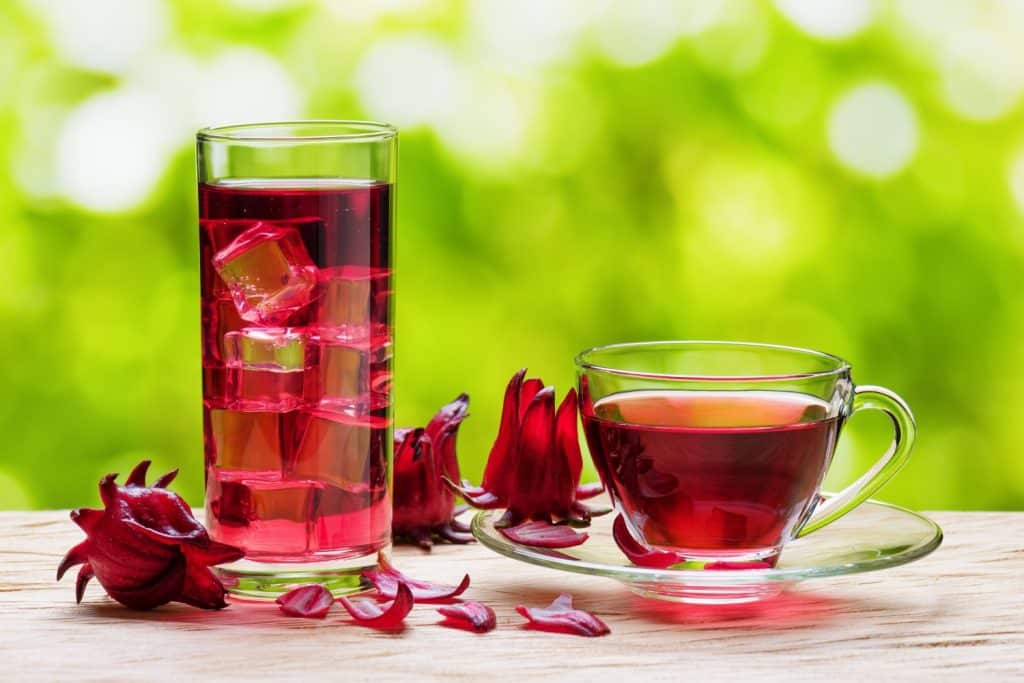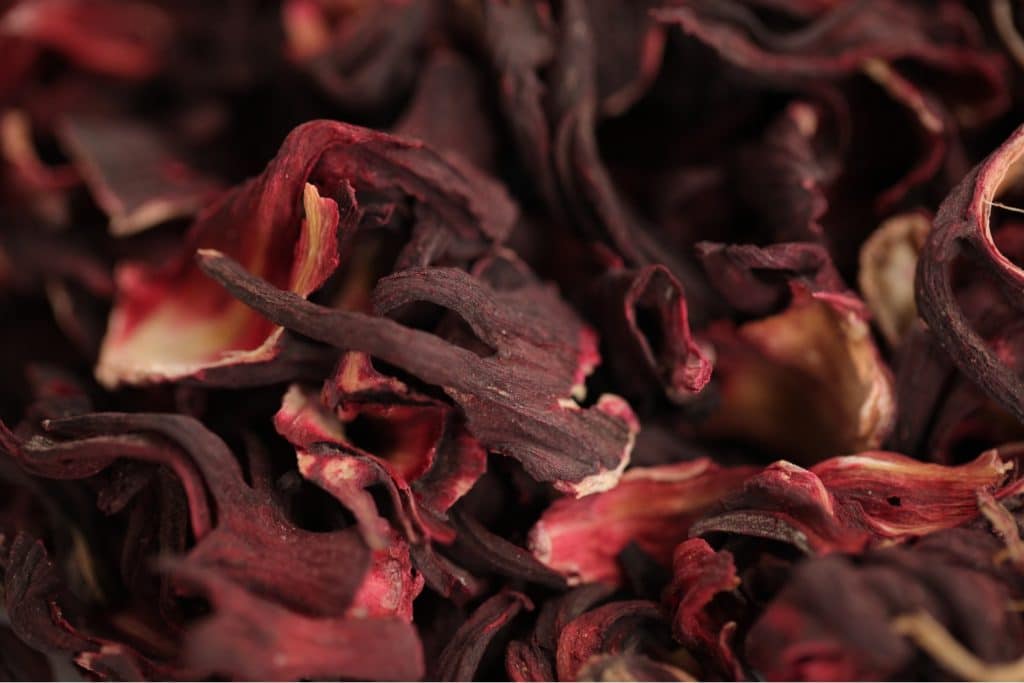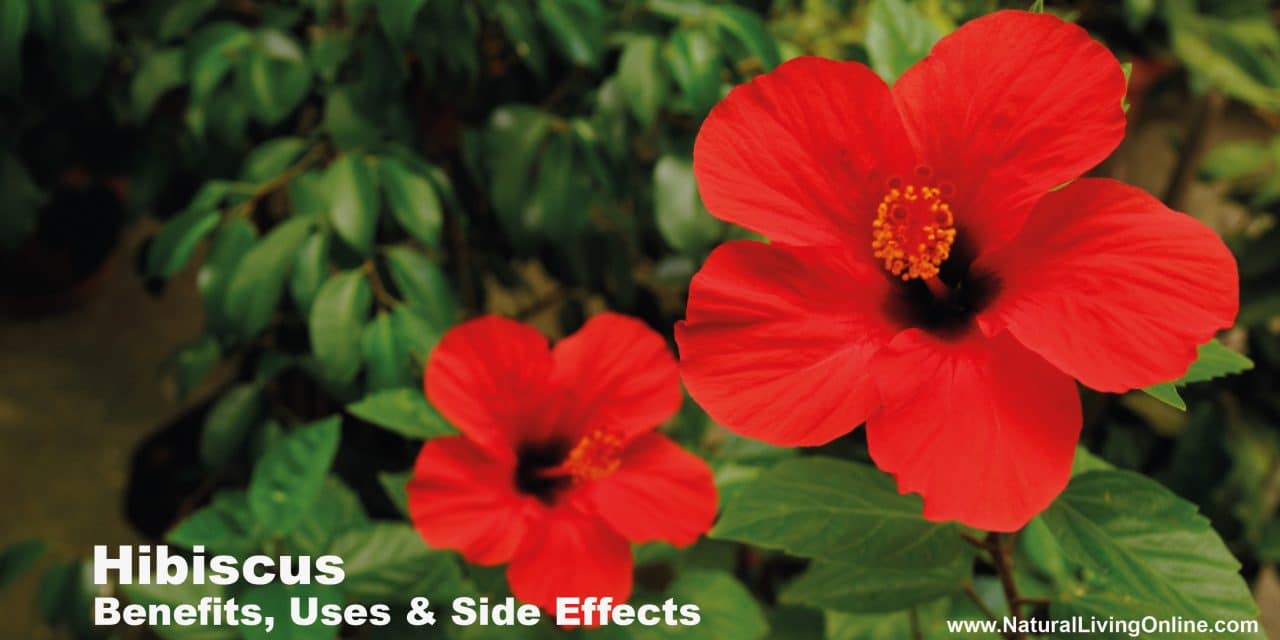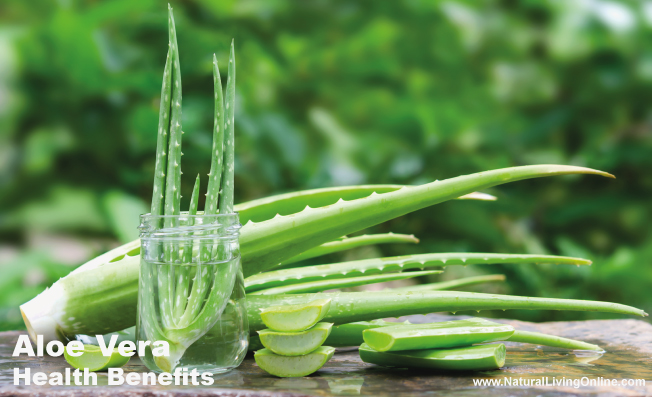Hibiscus, known scientifically as Hibiscus sabdariffa, has gained attention for its potential health benefits and uses. This vibrant flower is often brewed into tea and used in traditional remedies. Its high content of antioxidants and nutrients makes it a popular choice for those seeking natural health solutions.
Hibiscus may help lower blood pressure, making it particularly beneficial for those with hypertension. It has also shown promise in protecting the liver, supporting heart health, and even offering antidiabetic properties. The presence of organic acids, anthocyanins, and phenolic acids contribute to these possible benefits.
Despite its perks, hibiscus is not without side effects. It can cause a drop in blood pressure, and some people may experience dermatitis or nausea. Always consult with a healthcare provider before adding hibiscus to your routine to ensure it’s safe for you.
Key Takeaways
- Hibiscus may lower blood pressure and support heart health.
- It contains antioxidants and can protect the liver.
- Side effects include possible blood pressure drop and nausea.
Hibiscus Herbal Profile

Botanical Name: Hibiscus sabdariffa
Family: Malvaceae
Common Names: Hibiscus, Roselle, Red sorrel, Flor de Jamaica, Karkade
Plant Description: Hibiscus sabdariffa is a tropical shrub native to Africa but widely cultivated in tropical and subtropical regions around the world. It can grow up to 2-2.5 meters (6-8 feet) tall and has red or green stems, lobed leaves, and large, bright red or white flowers. The calyces (the sepals of the flower) are used for their medicinal and culinary properties.
Herb Description: Hibiscus is known for its vibrant, tart flavor and deep red color. The herb is usually harvested for its calyces, which are the part of the flower that surrounds the petals and seed pod. These calyces are dried and used in teas, beverages, and herbal remedies.
Common Forms:
- Dried Calyces: The most common form used in teas and infusions.
- Powder: Ground calyces used in supplements and culinary applications.
- Extracts: Concentrated liquid or solid extracts for medicinal or cosmetic use.
- Capsules/Tablets: Supplements containing powdered hibiscus for oral consumption.
Nutritional and Chemical Composition:
Hibiscus is rich in nutrients and bioactive compounds. Key constituents include:
- Organic Acids: Citric acid, malic acid, tartaric acid, and hibiscus acid
- Anthocyanins: Delphinidin and cyanidin (responsible for the red color)
- Flavonoids: Quercetin and rutin
- Vitamin C: Contributing to antioxidant properties
- Polysaccharides: Mucilage providing soothing effects
- Minerals: Calcium, magnesium, and potassium
Properties:
- Antioxidant: Protects cells from oxidative stress and free radical damage.
- Anti-inflammatory: Reduces inflammation in the body and skin.
- Antihypertensive: Helps lower blood pressure.
- Diuretic: Promotes the excretion of excess water and toxins from the body.
- Antimicrobial: Fights bacteria and fungi, preventing infections.
- Digestive Aid: Improves digestion and soothes the gastrointestinal tract.
- Cholesterol-Lowering: Helps reduce levels of LDL (bad) cholesterol.
Nutritional Profile and Antioxidant Properties
Hibiscus is packed with beneficial compounds that can help support health. Key compounds in hibiscus include vitamins, minerals, and various antioxidants such as anthocyanins and flavonoids.
Natural Compounds in Hibiscus
Hibiscus contains a variety of natural compounds that contribute to its health benefits. One of the notable elements is vitamin C, which is crucial for immune function and skin health. The plant also offers an array of minerals like calcium, iron, and magnesium.
The presence of organic acids, such as citric acid and malic acid, enhances its nutritional profile. These acids can help in the digestion of food and improve the absorption of nutrients. Apart from these, hibiscus is rich in polyphenols, which have antioxidant properties. These polyphenols can help reduce inflammation and combat oxidative stress.
Antioxidants and Their Effects
Hibiscus is a potent source of antioxidants, with anthocyanins being one of the primary compounds. Anthocyanins are responsible for the vibrant red color of hibiscus and can help protect cells from damage by neutralizing free radicals.
Flavonoids found in hibiscus also contribute to its antioxidant properties. These compounds have been shown to have anti-inflammatory and anti-cancer effects. Phenolic acids present in hibiscus add to its antioxidant potential, helping in the prevention of various chronic diseases.
The combination of these antioxidants makes hibiscus a valuable addition to a diet aimed at preventing oxidative stress and promoting overall health. These antioxidative properties can support cardiovascular health, aid in lowering blood pressure, and provide liver protection.
Potential Health Benefits

Hibiscus tea has gained attention for its potential health benefits in areas such as cardiovascular health, metabolic syndrome management, and liver function. It is important to look into these benefits based on the current research and understanding.
Cardiovascular Health
Hibiscus tea may have a positive impact on cardiovascular health. Studies suggest it can help lower blood pressure, which is beneficial for people with hypertension. The tea contains antioxidants that may reduce inflammation and improve heart health.
It also helps in lowering LDL (bad cholesterol) levels. High levels of LDL can lead to heart disease. Antioxidants in hibiscus target free radicals, which can damage cells in the cardiovascular system.
Drinking hibiscus tea may also help lower triglycerides. Lowering these factors can reduce the risk of heart disease.
Metabolic Syndrome Management
Hibiscus tea might help in managing conditions related to metabolic syndrome. This includes benefits for weight loss. The tea appears to have properties that help reduce fat accumulation in the body.
Consuming hibiscus tea could lower blood sugar levels. This is important for people with diabetes or prediabetes. Managing blood sugar can prevent complications related to diabetes.
Some studies also suggest that hibiscus tea can lower overall cholesterol levels. This includes reducing LDL (bad cholesterol) and potentially raising HDL (good cholesterol). This balance is crucial for metabolic health and reducing the risk of related conditions.
Liver Health and Function
Hibiscus tea may support liver health. The antioxidants in hibiscus can help protect the liver from damage. It could also improve liver function by reducing fatty buildup in the liver.
A healthy liver is important for detoxifying the body. Proper liver function also helps manage cholesterol levels. Some evidence suggests that hibiscus can have a liver-protective effect.
Hibiscus tea’s potential to reduce inflammation is another benefit. Reducing inflammation can prevent damage to liver cells. This helps in maintaining the liver’s overall health and efficient function.
Hibiscus Uses in Traditional and Modern Medicine
Hibiscus has been used both in traditional medicine and modern applications for its medicinal properties. People have used hibiscus in different forms, such as tea and medicinal preparations, to address various health issues like high blood pressure and liver problems.
Brewing Hibiscus Tea
Hibiscus tea, often referred to as roselle or sour tea, is brewed using the dried calyx of the hibiscus flower. In many cultures, this herbal tea is enjoyed both for its tart flavor and potential health benefits.
Hibiscus tea can help lower blood pressure and improve cholesterol levels. It is also rich in antioxidants, which may protect cells from damage. People often drink hibiscus tea hot or iced, known as karkade in some regions and jamaica in others.
Medicinal Preparations of Hibiscus
Beyond tea, hibiscus is used in various medicinal preparations. Extracts derived from hibiscus are incorporated into some supplements and medications to address health issues like high blood pressure and liver problems.
Traditional medicine has employed hibiscus as a diuretic and for its potential to protect liver health. Modern research supports some of these uses, highlighting its antihypertensive and antioxidant properties. Hibiscus can be found in capsules, powders, and liquid extracts, offering different ways to benefit from its medicinal properties.
Safety Profile and Possible Side Effects
Hibiscus is generally safe for most people when consumed in moderate amounts. However, it can have side effects and interact with certain medications. Pregnant women and individuals with liver conditions should be cautious.
Contraindications and Precautions
Hibiscus may cause blood pressure to drop, making it unsuitable for individuals with hypotension or those on blood pressure medications. People who are allergic to hibiscus or related plants should avoid it to prevent allergic reactions like dermatitis or hives.
Pregnant women should be cautious with hibiscus as it may impact hormone levels or cause complications. There are reports of liver damage when taking very high doses, so individuals with liver health concerns should consult a healthcare provider before use.
Drug Interactions
Hibiscus can interact with various medications. It may increase the effects of blood pressure-lowering drugs, leading to dangerously low blood pressure. The herb can also interfere with liver enzymes that metabolize medications, potentially risking liver failure if taken in high doses or with other liver-impacting drugs.
People taking anti-inflammatory or pain relief medications should be cautious, as hibiscus may amplify their effects. It’s important to discuss with a healthcare professional before combining hibiscus with other treatments. The FDA has not regulated all products containing hibiscus, so checking for any potential interactions is essential for safety.
Scientific Evidence and Research

Research on hibiscus has shown positive outcomes in several areas including blood pressure control and metabolic health. Detailed below are the key findings from clinical trials and emerging studies on the health benefits of hibiscus.
Clinical Trials on Hibiscus
Hibiscus has been investigated in multiple clinical trials for its effects on conditions like hypertension and metabolic syndrome. Studies have demonstrated that hibiscus can help lower blood pressure, similar to the effects of some medications like hydrochlorothiazide. A review noted that hibiscus lowered both systolic and diastolic blood pressure in human trials.
Clinical trials have also addressed hibiscus’s role in managing cholesterol levels. Research suggests improvements in high-density lipoprotein (HDL) levels and a reduction in low-density lipoprotein (LDL) levels. This can be particularly helpful for people with metabolic syndrome, as shown in studies focusing on markers like hyperglycemia and hypertriglyceridemia.
Emerging Studies on Health Effects
Emerging research points to additional benefits of hibiscus beyond blood pressure control. Laboratory studies indicate potential anticancer properties; specific compounds in hibiscus, such as anthocyanins, may inhibit the growth of certain cancer cells. Research is ongoing to confirm these effects in human subjects.
Hibiscus also shows promise in addressing insulin resistance and oxidative stress. Some studies suggest it could benefit people with conditions like fatty liver disease. Additionally, the antibacterial properties of hibiscus may help combat infections caused by harmful bacteria. Various hibiscus supplements are being studied to further understand these effects and potential health benefits.
New evidence continually emerges, supporting the broader use of hibiscus in health and wellness.
Frequently Asked Questions
What are the health advantages of consuming hibiscus tea?
Hibiscus tea is known to help reduce both systolic and diastolic blood pressure. It is also thought to have liver-protective properties and may aid in lowering cholesterol levels.
Are there any risks associated with using hibiscus for medicinal purposes?
Hibiscus can cause blood pressure to drop significantly, potentially leading to dizziness. Some individuals may experience allergic reactions, such as dermatitis or gastrointestinal discomfort.
Can drinking hibiscus tea impact kidney health?
Hibiscus tea can support kidney health by managing high blood pressure, which is a risk factor for kidney disease. However, more extensive research is needed to confirm its full benefits.
What possible skin reactions can occur from using hibiscus?
Some people may develop skin reactions like dermatitis after using hibiscus. This can include redness, itching, and inflammation.
Who may be adversely affected by consuming hibiscus tea?
People allergic to hibiscus or related plants should avoid it. It may also interact with medications that lower blood pressure or affect liver function.
Is daily consumption of hibiscus recommended for overall health?
Daily consumption of hibiscus can benefit heart health by managing blood pressure and cholesterol. However, individuals should consult a healthcare provider to ensure it is safe for their specific health conditions.
References:
THERAPEUTIC POTENTIAL OF HIBISCUS ROSA SINENSIS: A REVIEW
Physiological Effects and Human Health Benefits of Hibiscus sabdariffa: A Review of Clinical Trials
An update review on Hibiscus rosa sinensis phytochemistry and medicinal uses
This website does not provide medical advice.
All information provided on this website, and on associated social media networks, including but not limited to texts, images, and numbers are for general information purpose only. It is not intended as medical advice and it does not include all possible precautions, side effects, or interactions that may occur. Neither NaturalLivingOnline.com nor its author/founder take responsibility for how you use this information. Statements contained on NaturalLivingOnline.com have not been evaluated by the FDA. You should conduct thorough research via multiple sources and consult your physician or qualified doctor before using any essential oil or herbal remedy. Information on NaturalLivingOnline.com must not be relied upon for medical, legal, financial or other decisions.













